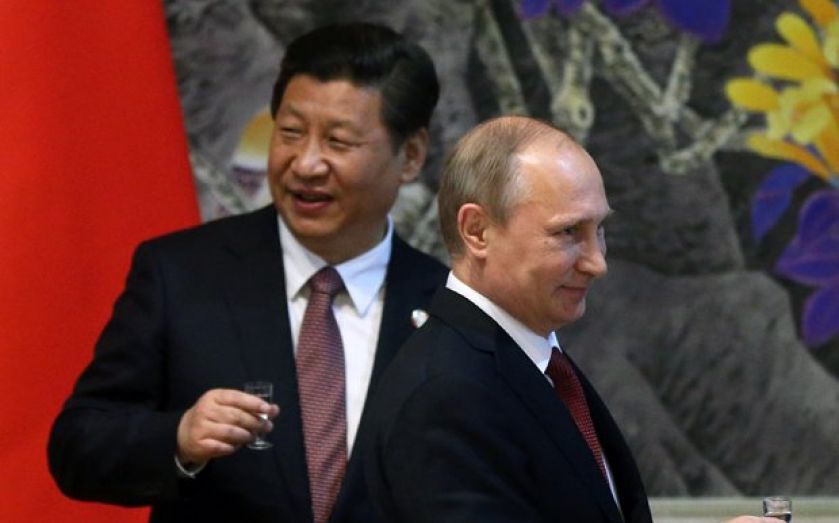China is the real victor as Putin looks East

WHEN President Vladimir Putin voyaged to Beijing this week, it was with one thing in mind: strengthening Sino-Russian relations. The signing of a $400bn (£237bn) gas pipeline deal with Beijing formed the centrepiece of this effort. Russia’s aggression in Ukraine is pushing the US and Europe away, and Putin is looking to reorient towards an alliance with China. This will trigger the re-emergence of US-Russia-China triangular relations as a major dynamic in global politics and economics.
The China-US-USSR triad dominated the geopolitical landscape for the final decades of the Cold War. President Richard Nixon’s visit to China in 1972 allowed America to capitalise on extreme Sino-Soviet tension. But the fall of the Berlin Wall and the Tiananmen crisis in 1989 degraded the significance of the triangular relationship. Now, China’s rise as a major power and Russia’s geopolitical assertiveness mean the trilateral dynamics are assuming a new importance. With the US and Russia locked in conflict, Beijing is the new fulcrum, able to play one side off another.
Putin hopes that China will join Russia in an anti-Western alliance, but that is not where the new triangle is heading. China will not antagonise the West to the extent Russia desires, continuing to see the US as its partner in the “new model of great power relations”. Further, since Russia is the supplicant in the relationship, China will drive hard bargains.
In particular, China will not legitimate Putin’s revanchism. Referenda on national sovereignty are anathema to China – think of the implications for Tibet, Xinjiang, Hong Kong, and Taiwan. But China will maintain its benign neglect on these issues, abstaining on controversial UN votes and undermining Western sanctions.
Putin also wants to dramatically expand Russia’s role as an energy provider to Beijing. Moscow’s desire to expand energy exports intersects with Beijing’s search for greater energy security; thus the agreement this week. But although Russia secured some $25bn (£14.8bn) in prepayment to finance the pipeline – crucial in the face of Western sanctions — China got the better end of the deal. Gazprom will supply it natural gas at significantly lower-than-market rates, saving Beijing tens of billions of dollars.
Just as the US was emboldened by closer relations with the third main power in the Cold War, so China will gain resolve from Russia’s pursuit of its affections. But the closer Russia-China relationship is unlikely to shift US policymakers’ calculations on Asia-Pacific issues. America will not weaken its commitments to treaty-bound allies like Japan in the face of increased Chinese confidence, and will continue to pursue its flagship regional trade deal – the Trans-Pacific Partnership. The US will also keep pressing China on its state-sponsored commercial espionage. But, while not a game changer for US policy, China will perceive new leverage coming from its partnership with Russia, making it more difficult for America to achieve its policy goals in Asia.
David Gordon is chairman and head of research at Eurasia Group, and a former director of policy planning at the US State Department.